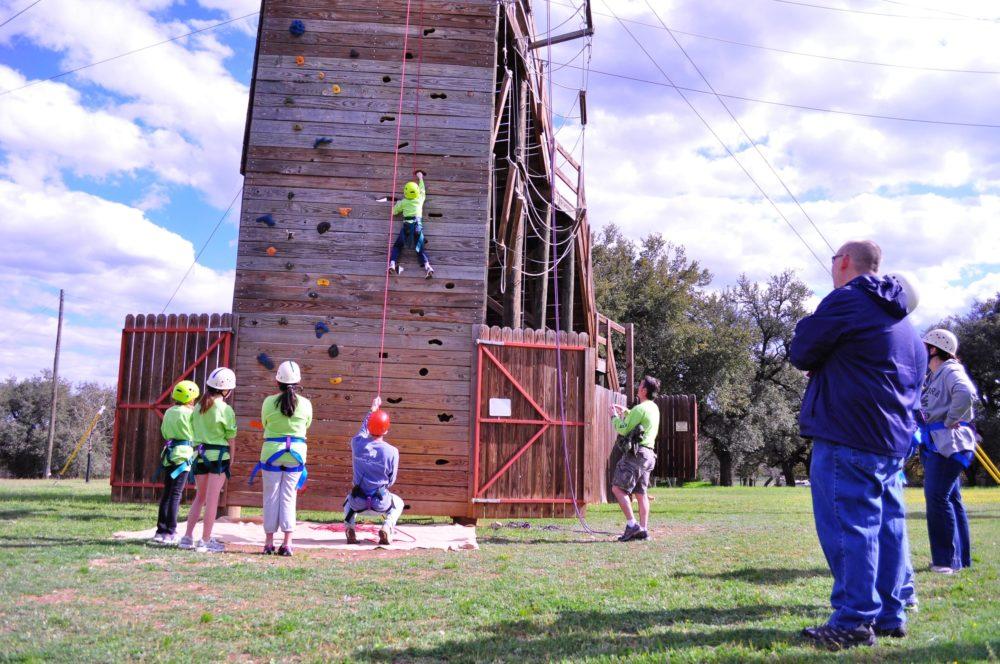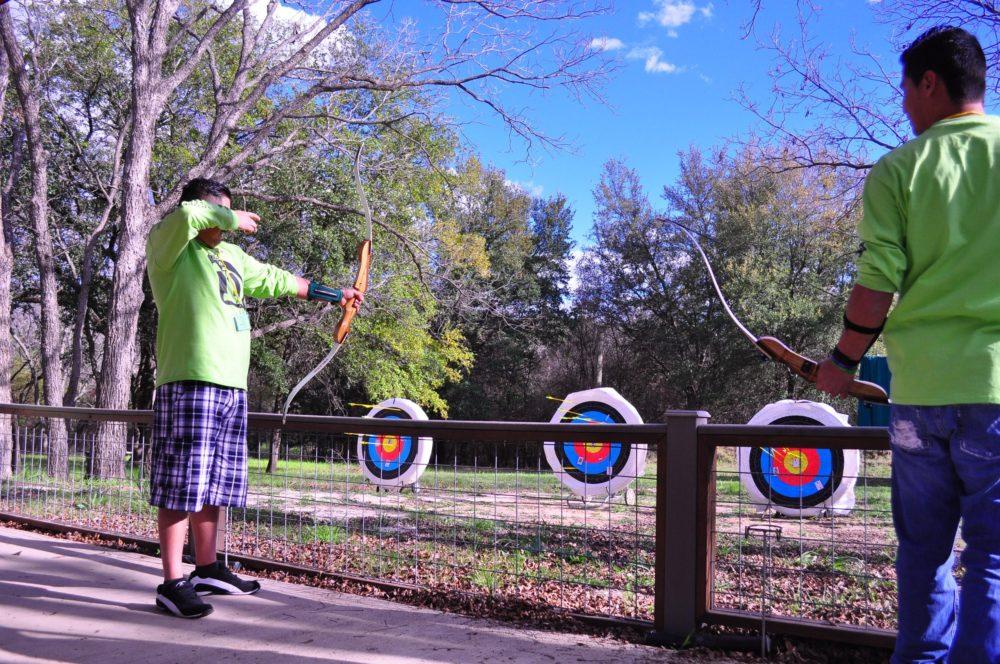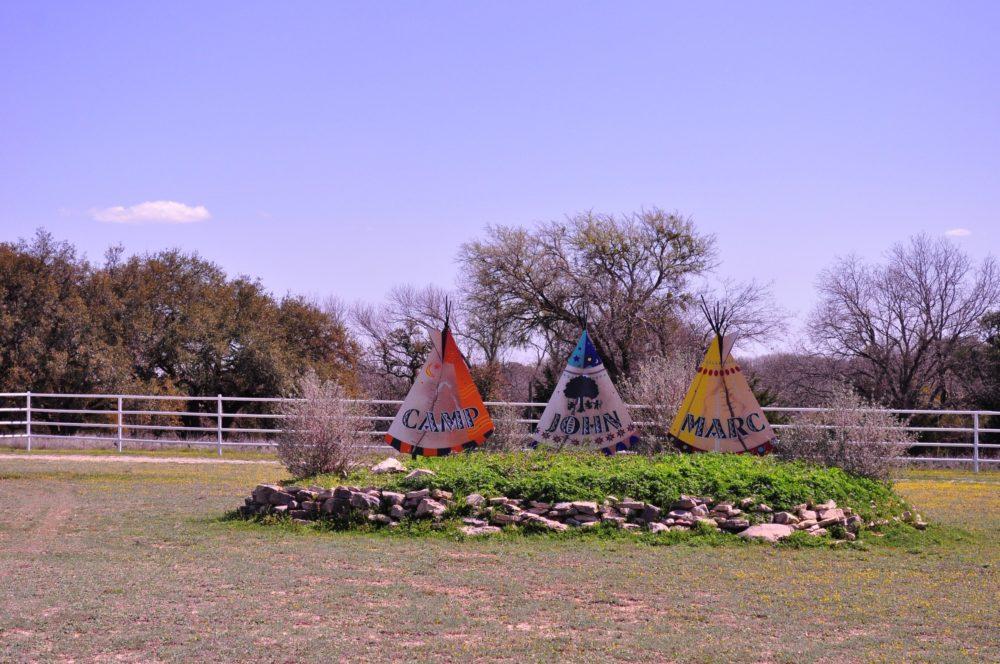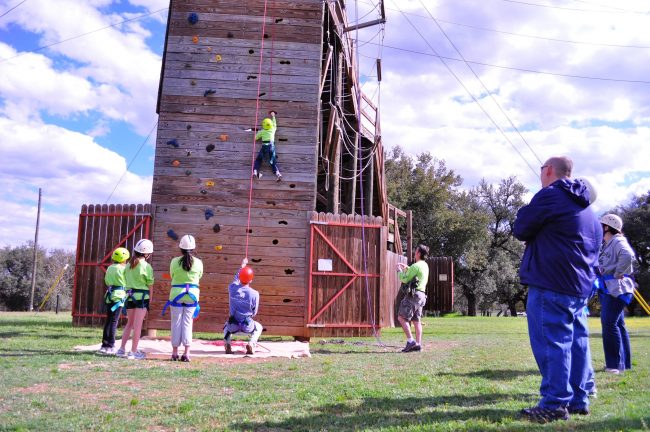
Children and parents watch as campers climb to the top of the ropes course
MERIDIAN, TX–Yenifer Ortega is only 9-years-old but she has already been through more hardships than most adults. She is fragile due to an immune deficiency, which has led to constant need for medical care. Her liver is enlarged, she has high blood pressure, and her spleen was removed earlier this year.
Because of her condition, Yenifer has been unable to attend school this year but she was able to go to camp for a weekend. At Camp John Marc, Yenifer climbed the ropes course and zipped down the zip-line on her own for the first time. For her, this was a huge accomplishment.
How did it feel? “Super good,” she said with a smile.
Camp Immuno-Deficiency (ID) is a weekend camp organized through Fort Worth’s Cook Children’s Hospital to help families and their children cope by providing a “normal” outing for the patients. Camp ID is in its third year.
“This camp and this whole process is really awesome. It gives them that empowerment and it gives them a chance to just be a kid, even if it’s just for a weekend,” said Camp ID Director, Christine Curtis.
Camp ID is one of many programs that Camp John Marc, a 170-acre ranch 80 miles southwest of Dallas, hosts. Camp John Marc is a year-round facility specifically designed to house children with chronic illnesses or major physical disabilities.
The camp facility, equipped with an extensive medical building and infirmary, meets the needs of any camper with a serious illness. Most importantly, Camp John Marc has the ability to airflight patients to the hospital if their conditions worsen unexpectedly.
The majority of the campers at the ID camp are often hospitalized, unable to attend school, and receive regular treatments at Cook Children’s hospital. Life is difficult for them and they often feel isolated because not only is the population of children with ID in North Texas miniscule, but they are unable to meet each other at the hospital due to patient confidentiality laws.
“To have an experience like this and see that there are other kids like you going through the same treatment,” said DeAnna Berry, whose 15-year-old son, Briggs, attended the camp. He was diagnosed with ID when he was 4-years-old. “To just get out here and forget it all for a weekend is what Camp ID means to the children,” she said.
While the camp focuses on activities like fishing, ropes course challenges, and archery, there are also support groups for the families.
The camp gives children a chance to slip away for a weekend and participate in fun activities suited to their medical needs, but the activities and support groups are not just for the kids.
“The families go through a lot of financial stress, emotional stress, and the siblings need that psycho-social support that we can offer here, so we have time for just those groups,” said Curtis.
Individual group sessions are scheduled throughout the weekend so parents have the opportunity to share their feelings and concerns about their children with other adults who are in similar situations.
Recently, the mothers participated in various arts and crafts-related projects at a therapy session. There, the women could share their feelings and work through their emotional stress. One activity they took part in was using a pot broken into pieces.
“That’s kind of how your life feels at times,” said Berry. “Life is broken into pieces because you are not like everybody else. You are different. And we tried to put that pot back together and make it pretty from the outside,” she said.
Family members say they are able to experience life a little differently at the camp, even if it’s just for a weekend.
“It’s a place where we were comfortable and safe to have fun for a moment,” said Yenifer’s mother, Erica Ortega. “All our worries were back home,” she said.

Campers and parents test their skills at the archery range.

Entrance to Camp John Marc









